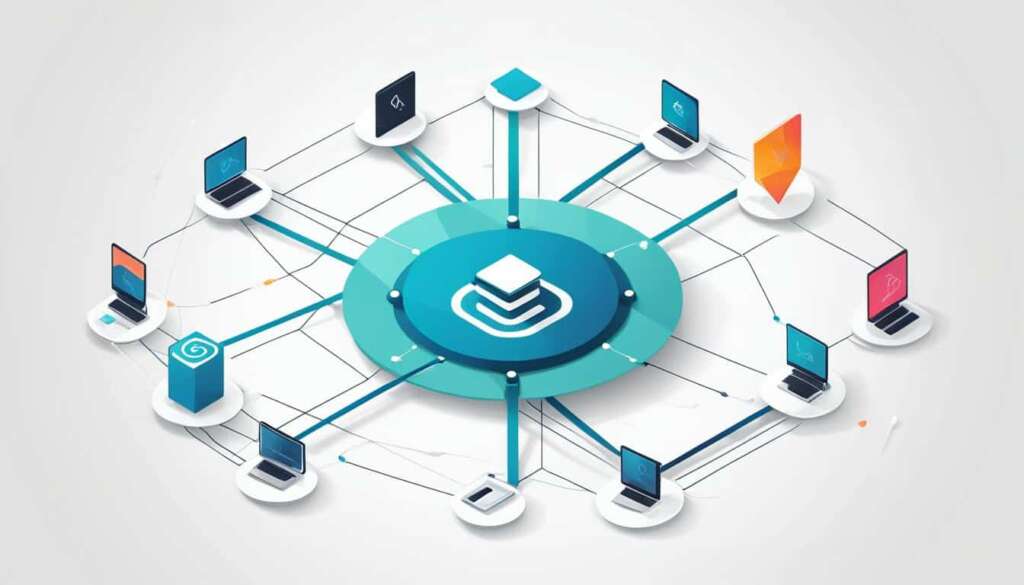Table of Contents
An IP address is a unique address that identifies a device on the internet or a local network. It is an essential component of the Internet Protocol (IP), the set of rules governing the format of data sent via the internet or local network.
IP addresses play a crucial role in internet connectivity and online communication. They allow devices to send and receive information, enabling seamless communication between individuals, businesses, and organizations worldwide.
With the presence of IP addresses, devices can establish connections, exchange data, and access resources on the internet. Whether it’s browsing the web, sending emails, or streaming media, every online activity relies on IP addresses for successful transmission.
How Do IP Addresses Work
IP addresses play a crucial role in enabling device connectivity and facilitating network connections. Understanding how IP addresses work is essential in comprehending the mechanics of communication on the internet.
When a device connects to the internet, it is allocated an IP address by the Internet Service Provider (ISP). This IP address serves as the device’s unique identification and is used to route internet activity to and from the device.
There are two types of IP addresses: dynamic and static. Dynamic IP addresses are automatically assigned by ISPs from a pool of available addresses. These addresses can change periodically, allowing ISPs to efficiently manage their IP address allocation. On the other hand, static IP addresses are manually configured and remain constant, ensuring a consistent network connection.
To illustrate the difference between dynamic and static IP addresses, let’s consider an analogy:
Imagine attending a conference where each participant is assigned a temporary identification badge. In this scenario, the identification badge represents the dynamic IP address. As attendees come and go, their badges change, but they are still able to communicate with others at the conference. In contrast, a static IP address would be akin to a permanent identification badge that remains the same for the entire duration of the conference.
This distinction between dynamic and static IP addresses has implications for different use cases. Dynamic IP addresses are commonly used for residential internet connections, as they are cost-effective and streamline IP address management. Static IP addresses are often employed in scenarios where consistent access is required, such as hosting websites or running servers.
Understanding IP address allocation and the distinction between dynamic and static IP addresses forms the foundation for comprehending network connectivity and the routing of internet traffic.
Image shows a visual representation of device connectivity, emphasizing the importance of IP addresses in facilitating network communication.
Types of IP Addresses
IP addresses come in different types that serve specific purposes. Understanding these types is essential for grasping the intricacies of how IP addressing works. In this section, we’ll explore the various categories of IP addresses, including their functionalities and applications.
Consumer IP Addresses
Consumer IP addresses are assigned to individuals and businesses as part of their internet service plans. These addresses enable users to connect their devices to the internet and access online services. Consumer IP addresses can be either dynamic or static, depending on the service provider’s configuration.
Private IP Addresses
Private IP addresses are used within a network to facilitate local communication between devices. These addresses are not accessible from the internet. Private IP address ranges, such as those defined by the Internet Engineering Task Force (IETF), ensure that devices within the same network can communicate and exchange data.
Public IP Addresses
Public IP addresses are employed to recognize an entire network on the external internet. These addresses are unique and identify a network as a whole, enabling devices connected to that network to access online resources. Public IP addresses can either be dynamic, automatically assigned by the network’s internet service provider, or static, manually configured and maintained by the organization.
Shared IP addresses are used when multiple websites are hosted on the same server. In this scenario, multiple domain names are associated with a single IP address. This approach helps to optimize resources and reduce costs by hosting multiple websites on a single server.
Dedicated IP Addresses
Dedicated IP addresses are specific to individual websites. Each website is allocated a unique IP address, which enables direct access to that site. Dedicated IP addresses are often used for websites that require secure access, such as those that handle sensitive information or conduct e-commerce transactions.
Understanding the different types of IP addresses provides valuable insights into how the internet functions and how devices communicate with each other. The next section will delve into the potential security threats associated with IP addresses and ways to protect against them.

IP Address Security Threats
When it comes to keeping your online presence secure, understanding the potential threats to your IP address is crucial. Cybercriminals employ various techniques to obtain IP addresses, and being aware of these threats is the first step towards protecting yourself.
Social engineering is one tactic used by cybercriminals to trick individuals into revealing their IP addresses unintentionally. Through manipulation and deception, criminals may exploit the trust of unsuspecting victims, leading to potential security breaches. Similarly, online stalking can be another method employed by cybercriminals to track and obtain IP addresses. It is important to be vigilant about the information you share online to minimize the risk of falling victim to these tactics.
An additional method used by attackers is the utilization of Skype Resolver tools. These tools enable cybercriminals to uncover IP addresses from usernames, potentially leading to further malicious activities. Protecting your IP address security involves implementing measures to safeguard against such tools and prevent unauthorized access by cybercriminals.
As IP addresses play a vital role in identifying and connecting devices online, addressing IP address security threats should be a priority. By staying informed, practicing safe online habits, and utilizing appropriate security measures, you can enhance your protection against cybercriminals seeking to exploit IP addresses for nefarious purposes.
FAQ
What is an IP address?
An IP address is a unique address that identifies a device on the internet or a local network. It is the set of rules governing the format of data sent via the internet or local network. IP addresses play an essential role in internet connectivity and online communication.
How do IP addresses work?
IP addresses work by allowing devices to communicate with each other. When a device connects to the internet, it is assigned an IP address by the Internet Service Provider (ISP). This IP address serves as the device’s identification and is used to route internet activity. IP addresses can be dynamic, changing automatically and regularly, or static, remaining constant.
What are the types of IP addresses?
There are different types of IP addresses. Consumer IP addresses are used by individuals and businesses for their internet service plans. Private IP addresses are used within a network, while public IP addresses are used outside of a network to recognize a whole network. Public IP addresses can be dynamic or static. Website IP addresses can also be shared or dedicated.
Do IP addresses pose security threats?
Yes, IP addresses can be targeted by cybercriminals. They can use various techniques, such as social engineering and online stalking, to obtain IP addresses. For example, attackers can use Skype Resolver tools to find IP addresses from usernames. It is important to be aware of these threats and take steps to protect IP addresses from unauthorized access.












